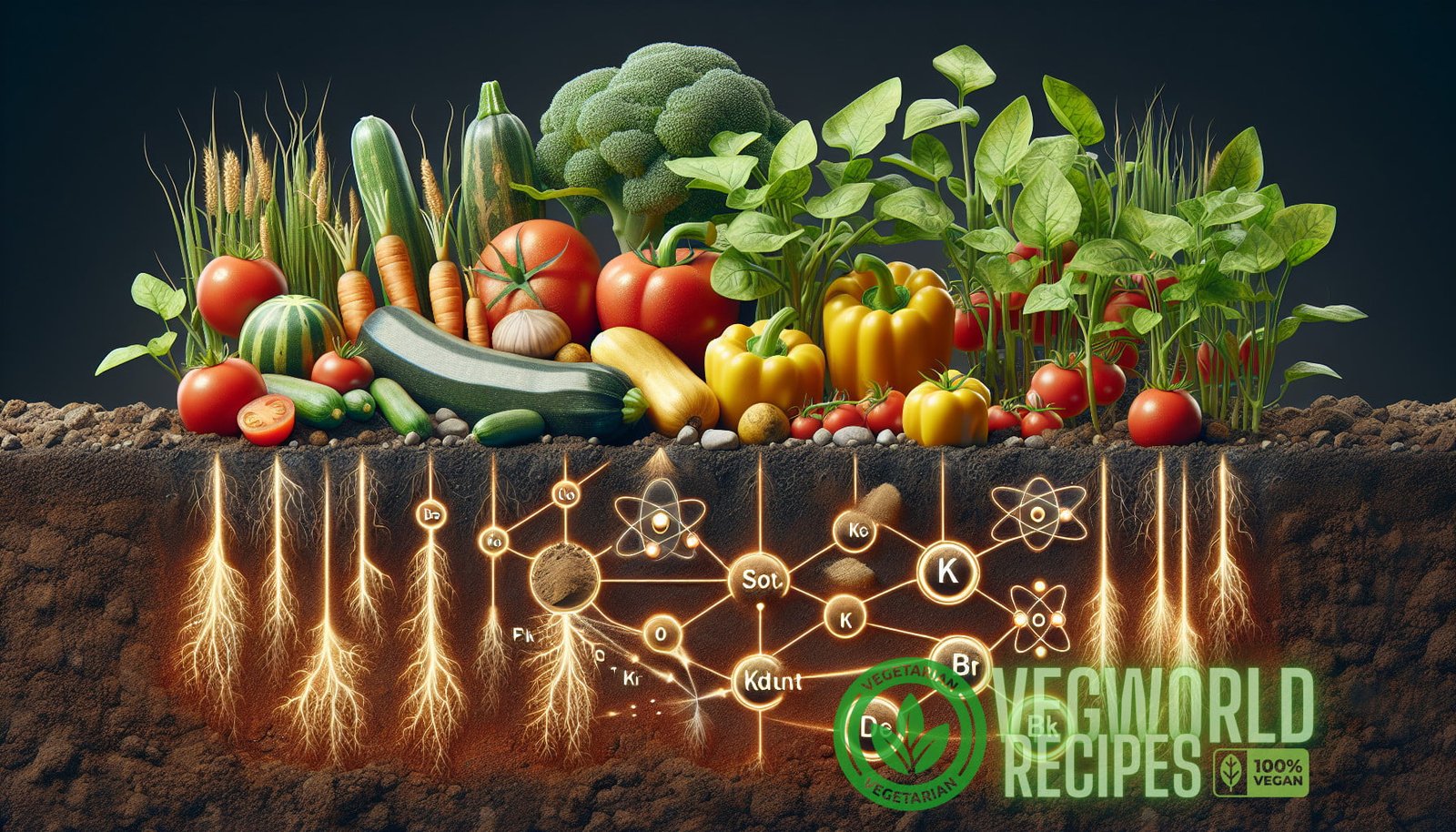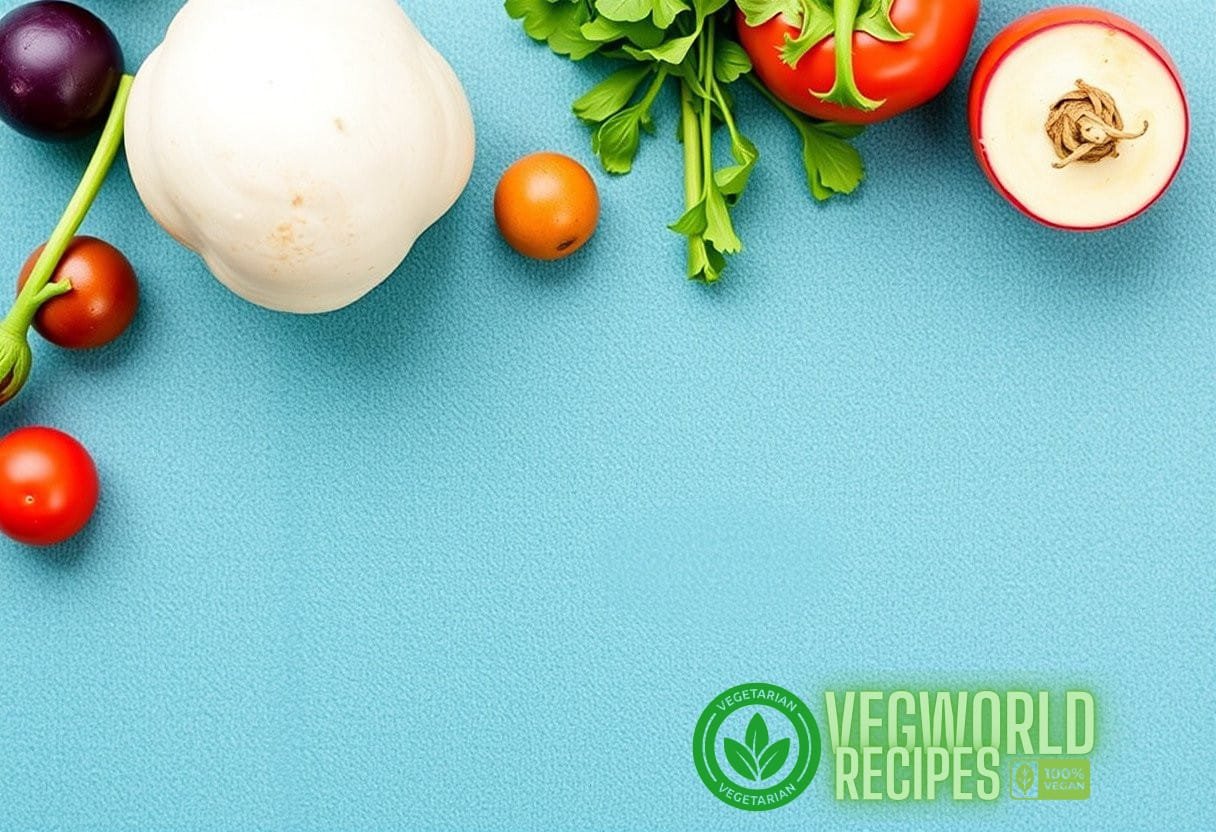The Impact of Soil Composition on the Nutritional Value of Seasonal Vegetables: Unearthing the Hidden Link for Sustainable and Flavorful Dishes
When it comes to the nutritional value of seasonal vegetables, many factors contribute to their quality and taste. One crucial factor that is often overlooked is the soil composition in which these vegetables are grown. The soil itself plays a significant role in determining the nutrient content of the plants and ultimately affects the taste and flavor of the dishes they are used in. In this article, we will explore the fascinating relationship between soil nutrition and the nutritional value of seasonal vegetables, and unveil the hidden link that can lead to more sustainable and flavorful dishes.
Soil Nutrition and Plant Health
Before delving into the impact of soil nutrition on the nutritional value of vegetables, it’s essential to understand the relationship between soil and plant health. Soil provides the foundation for plant growth, acting as a reservoir for water, nutrients, and essential microorganisms. The composition of the soil determines its fertility, which directly affects the uptake of nutrients by plants. A healthy soil ecosystem, rich in organic matter, beneficial bacteria, fungi, and other microorganisms, creates an optimal environment for plant growth.
Plants obtain nutrients from the soil through their root systems. The availability of key nutrients, such as nitrogen, phosphorus, potassium, calcium, magnesium, and trace elements, directly impacts the growth and development of plants. These nutrients play vital roles in various physiological processes within the plants, including photosynthesis, energy production, and the synthesis of proteins, vitamins, and antioxidants. Therefore, it’s crucial to maintain a balanced and nutrient-rich soil environment to ensure the optimal health and nutrition of plants.
The Role of Soil Composition in Nutritional Value
Now that we understand the importance of soil nutrition for plant health, let’s explore how it affects the nutritional value of seasonal vegetables. The nutrient content of plants is largely influenced by the availability of nutrients in the soil. The composition of the soil, including its pH level, mineral content, and organic matter content, directly impacts the nutrient uptake by plants.
Here are some key factors of soil composition that affect the nutritional value of seasonal vegetables:
1. pH Level:
The pH level of the soil, which indicates its acidity or alkalinity, plays a crucial role in nutrient availability. Different vegetables thrive in different pH ranges, and the optimal pH level for most vegetables is slightly acidic to neutral (pH 6-7). When the pH level of the soil falls outside the optimal range, nutrient deficiencies can occur. For example, acidic soil can lead to a deficiency in essential nutrients such as calcium and magnesium, while alkaline soil can reduce the availability of micronutrients like iron and zinc. Maintaining the appropriate pH level in the soil is vital for ensuring the optimal nutrient uptake by plants and subsequently enhancing the nutritional value of the vegetables.
2. Organic Matter Content:
The organic matter content in the soil is another crucial factor that determines its fertility and nutrient content. Organic matter, such as decomposed plant material, animal manure, and compost, provides a rich source of nutrients for plants. It also improves soil structure, water retention, and the activities of beneficial microorganisms. When the soil is rich in organic matter, it provides a steady release of nutrients, ensuring a continuous supply for plant growth. This results in healthier and more nutrient-dense vegetables.
3. Mineral Content:
The mineral content of the soil, including its levels of nitrogen, phosphorus, potassium, and other essential minerals, directly affects the nutrient composition of seasonal vegetables. These minerals play crucial roles in plant growth and are essential for the synthesis of proteins, enzymes, and vitamins. For instance, nitrogen is a key component of chlorophyll, the pigment responsible for photosynthesis, while phosphorus is vital for energy transfer within the plant. Maintaining the proper balance of minerals in the soil is essential for promoting the growth of nutrient-rich vegetables.
The Impact of Soil Composition on Taste and Flavor
In addition to influencing the nutritional value of seasonal vegetables, soil composition also plays a significant role in determining their taste and flavor. The interplay between soil nutrients and plant physiology affects the synthesis of various compounds that contribute to the sensory characteristics of vegetables.
Here are some ways in which soil composition impacts taste and flavor:
1. Essential Oil Production:
The presence of minerals and organic matter in the soil stimulates the production of essential oils in plants. These oils contribute to the distinctive flavors and aromas of vegetables. For example, the unique aroma of fresh basil or the pungent taste of garlic can be attributed to the specific blend of essential oils that develop in response to the soil composition.
2. Sugar and Acid Balance:

The balance between sugar and acid content in vegetables directly impacts their taste. The availability of nutrients in the soil affects the production of sugars and organic acids in plants. For instance, an adequate supply of potassium promotes sugar accumulation in fruits, enhancing their sweetness. On the other hand, inadequate nutrient availability can result in imbalanced sugar and acid levels, leading to a less desirable taste.
3. Flavor-Enhancing Compounds:
Soil composition influences the synthesis of various flavor-enhancing compounds in vegetables. For example, the availability of sulfur in the soil affects the production of compounds like allicin in garlic, which contributes to its characteristic pungent flavor. The flavors of herbs, such as oregano and thyme, are also influenced by the unique blend of compounds produced in response to soil composition.
The Importance of Sustainable Soil Management
Understanding the impact of soil composition on the nutritional value and flavor of seasonal vegetables highlights the importance of sustainable soil management practices. By nurturing healthy soils, we can ensure the production of nutrient-dense, flavorful vegetables while minimizing the environmental impact of agriculture.
Here are some sustainable soil management practices to consider:
1. Organic Matter Addition:
Adding organic matter, such as compost or cover crops, to the soil improves its structure, water-holding capacity, and nutrient content. Organic matter provides a slow-release source of nutrients, improves soil fertility, and supports beneficial microorganisms.
2. Crop Rotation:
Rotating crops helps break pest and disease cycles, reduces nutrient imbalances, and improves soil structure. Different crops have different nutrient requirements, and crop rotation helps maintain soil fertility by preventing the depletion of specific nutrients.
3. Cover Cropping:
Planting cover crops in between main crops helps prevent soil erosion, improves soil fertility, and adds organic matter to the soil. Cover crops also promote biological diversity in the soil, benefiting beneficial microorganisms and reducing the need for synthetic fertilizers and pesticides.
4. Natural Fertilizers:
Using natural fertilizers, such as compost or organic fertilizers, helps replenish essential nutrients in the soil. These fertilizers provide a slow-release source of nutrients and improve soil health without causing harm to the environment.
Conclusion
The impact of soil composition on the nutritional value and taste of seasonal vegetables cannot be underestimated. By paying attention to the soil nutrition, growers can produce more nutrient-dense vegetables with enhanced flavors, providing consumers with healthier and tastier options. Sustainable soil management practices play a crucial role in maintaining the fertility and health of the soil, ensuring the long-term sustainability of our food system. By prioritizing soil nutrition, we can unearth the hidden link between the quality of our soil and the delicious dishes that grace our tables.
Internal Links:
- Seasonal Superfoods: Discover the Nutritional Powerhouses of Each Season!
- Discover Delectable Winter Veggie Creations for a Cozy Soul
External Link:
For more information on soil composition, you can visit the Wikipedia page on Soil.


